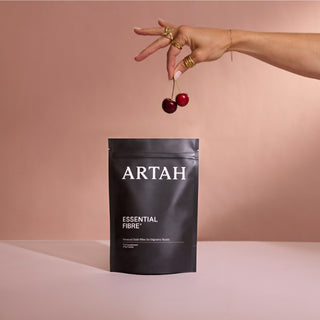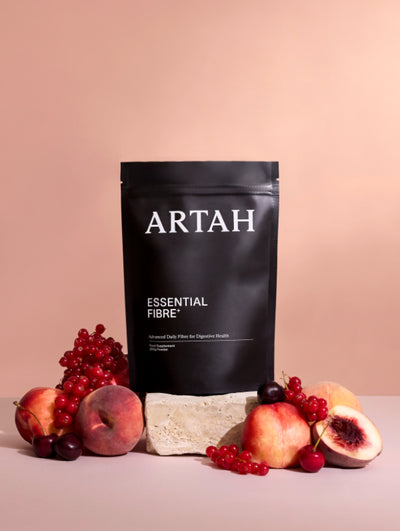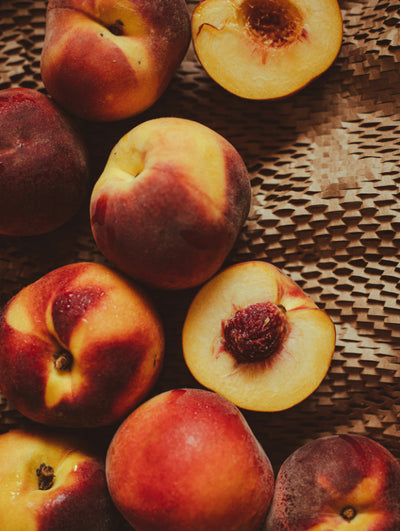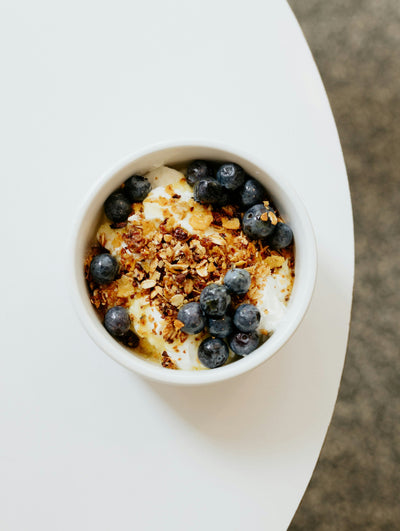Cultivating a state of great health takes time, consistency and patience, but that doesn’t mean that we can’t experience quick improvements with a little focus. A great example of this can be seen with our gut. We have trillions of bacteria in our microbiome, and studies show that they rapidly respond to changes in diet and lifestyle (1) which – as they are so influential to our metabolism, mood, energy and so much more – is good news. It turns out, we can positively influence our microbes in as little as 2-4 days.
Whilst this was a profound discovery in the scientific community, intuitively, it makes complete sense. Our gut is constantly communicating with us; a meal with fatty fish and other health-promoting phytonutrients, for example, leaves our gut feeling calm and satiated, while a meal with too much wine and take-aways leaves us feeling exactly the opposite (if not immediately, then definitely the next morning!).
Everyone will tolerate foods differently, but studies show that the fundamentals of great gut health should include a wide array of phytonutrients, polyphenols, fibre, fermented foods and good quality protein (2,3). Our microbes also seem to have preferences when it comes to the type of fat we eat; a study in Cell Metabolism showed that beneficial species of bacteria, including Lactobacillus, Bifidobacterium and Akkermansia increased when fed a diet high in omega-3 fats from fish oil, but were inhibited from a diet high in fat from animal lard (4). In addition, the diet high in animal fat and devoid of fish oil increased inflammatory metabolites from pathogenic bacteria in the gut and reduced insulin sensitivity – all in less than 3 days. Translation? We can become hungrier and more inflamed from our diets, quickly.
It’s not just our diet that plays a role. How we sleep, move and manage stress can rapidly change the activity of our microbiome. Here’s how you can improve your gut health in just 3 days.
What to eat:
- Focus on a vegetables, fruit, fatty fish, avocado, nuts, seeds, lentils, beans, extra virgin olive oil and healthier grains/pseudograins like brown rice, quinoa, buckwheat and millet.
- Ditch the foods that promote inflammation and feed harmful bacteria; this includes ultra-processed foods, sugar and refined starches, alcohol, sugar sweetened beverages and food chemicals like MSG or aspartame.
- Avoid gluten. Gluten is only partially digested in the gut and results in the release of a peptide that increases intestinal permeability, which in turn, can affect immunity and inflammation. Some individuals are more sensitive to gluten than others, but for the purpose of your reboot, it's best to avoid.
- When it comes to animal protein, stick to good quality chicken or turkey for the 3 days. While red meat has many benefits, for the purpose of making quick changes to the microbiome we want to avoid saturated fats and promote good transit time. Red meat can come back later.
- Pause all dairy, except plain organic yogurt with live cultures, or kefir. As above, certain types of dairy can have beneficial effects for those who tolerate it, but we’ll leave it out for 3 days.
- Add in live sauerkraut, or a fermented food of your choice. We love sauerkraut because it’s the most potent, so even adding a few tbsp to your meal each day packs in a serious punch.
How to eat:
- Alter your meal timing to give your digestive system a break. Like us, it needs time to rest and recover between periods of work to support healthy digestion, elimination, metabolism and immunity. For the next 3 days, avoid snacking and leave at least 4 hours between meals.
- Make your evening meal a little earlier. This will depend on your schedule, but when it comes to gut health, the earlier the better, so aim to eat by 7 pm for the next 3 days. Like us, our microbes follow a circadian rhythm and rely on sleep wake cycles to do their job. Research has shown that bacteria involved in Energy metabolism and protein production are more prevalent in the day, and those in detoxification pathways more active at night. (5)
- Mindfully. When stress hormones run high, digestive processes are impaired. Try to eat slowly, tech-free, and mindfully over the next 3 days and see how different your digestion feels.
How to move:
- Low-intensity exercise has been shown to improve gut transit time (6), so add in a slow run, brisk walk, yoga or Pilates.
- Not a quick fix, but important to mention, is that aerobic exercise leads to an increased abundance of beneficial bacteria and overall diversity, so if it’s not a staple in your regime, consider adding it in.
What to take:
- The most important changes you can make to see a quick improvement in your microbiome are the dietary ones we’ve mentioned above, but supplements can be transformative, especially if you’re suffering from gut, sleep or digestive issues already.
- To improve digestion and give your gut a dose of beneficial bacteria alongside anti-inflammatory Ginger and Boswelia, try Biome Restore.
- If you’re struggling with dysbiosis, chronic gut symptoms, or have taken frequent courses of antibiotics/been ill frequently over the last few years, try GI Cleanse, a herbal antimicrobial. It contains Berberine, Capryllic Acid, Black Walnut and other herbs proven to combat pathogenic bacteria and support beneficial bacteria.
- Sleep is a two-way street with the microbiome; poor microbial health can disrupt sleep quality, and a poor night's sleep can disrupt microbial health, which is why sleep is an essential tool for good gut health. If you’re finding it difficult to get a good night’s sleep, try Sleep Tonic.
- If you’re not a big fish eater, try adding Essential Omegas.

REFERENCES
1. David LA, Maurice CF, Carmody RN, Gootenberg DB, Button JE, Wolfe BE, Ling AV, Devlin AS, Varma Y, Fischbach MA, Biddinger SB, Dutton RJ, Turnbaugh PJ. Diet rapidly and reproducibly alters the human gut microbiome. Nature. 2014 Jan 23;505(7484):559-63.
2. Singh, R.K., Chang, HW., Yan, D. et al. Influence of diet on the gut microbiome and implications for human health. J Transl Med 15, 73 (2017).
3. Zhao J, Zhang X, Liu H, Brown MA, Qiao S. Dietary Protein and Gut Microbiota Composition and Function. Curr Protein Pept Sci. 2019;20(2):145-154. doi: 10.2174/1389203719666180514145437. PMID: 29756574.
4. Caesar R, Tremaroli V, Kovatcheva-Datchary P, Cani PD, Bäckhed F. Crosstalk between gut microbiota and dietary lipids aggravates WAT inflammation through TLR signaling. Cell Metab. 2015;22:658–68.
5. https://zoe.com/learn/gut-microbiome-body-clock
6. Bermon S., Petriz B., Kajeniene A., Prestes J., Castell L., Franco O. L. The microbiota: an exercise immunology perspective. Exercise Immunology Review. 2015;21:70–79.
This article is for educational purposes only and the implementation of the theories and practices discussed is at the sole discretion of the individual. All information given is not a substitute for medical advice, diagnosis, or treatment. If you have any concerns about your health, you should speak with your physician.


















































